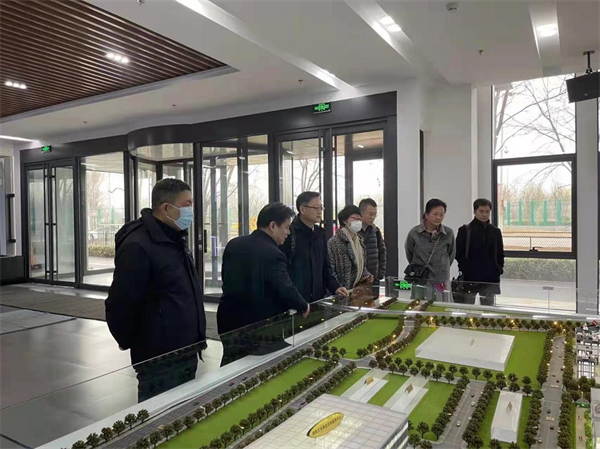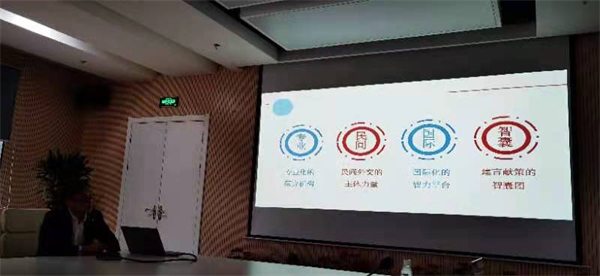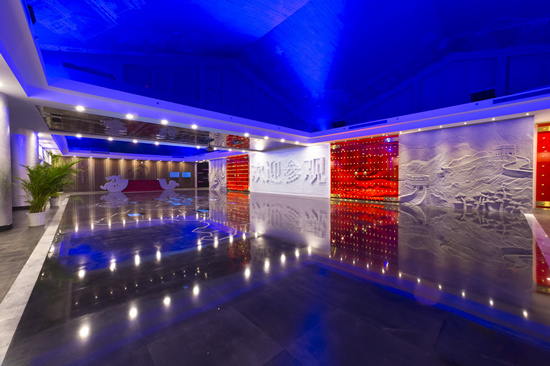CCG visits National Base for International Cultural Trade (Beijing)

The Center for China and Globalization (CCG) group visits the National Foreign Cultural Trade Base (Beijing) on March 29. [Photo/ SOCAAC]
Zhang Wei, deputy secretary-general of the Center for China and Globalization (CCG), and his entourage came to the National Foreign Cultural Trade Base (Beijing) to visit and discuss cooperation matters on March 29.

The Center for China and Globalization (CCG) group visits the National Foreign Cultural Trade Base (Beijing) on March 29. [Photo/ SOCAAC]
The operation and management unit of the base, Beijing International Cultural Investment Holding Co., Ltd.. chairman Lu Haihong, and deputy general manager Chen Gang received the visitors. The two parties conducted in-depth exchanges on researching professional topics, introducing key projects, holding large-scale events, and connecting with multinational companies.
Founded in 2008 and headquartered in Beijing, the CCG is China's leading global non-governmental think tank. CCG has been granted official special consultative status by the Economic and Social Council of the United Nations (ECOSOC) as a non-governmental organization. It has more than 10 branches and overseas representatives and over 100 full-time researchers and staff engaged in research on globalization, global governance, international economics and trade, international relations and global migration. CCG is also a national Postdoctoral Programme Research Center certified by the Chinese Ministry of Human Resources and Social Security.
The National Base for International Cultural Trade (Beijing), or the Culture Free Port, is located in the Tianzhu Free Trade Zone in Beijing's Shunyi district. In 2010, the Beijing Gehua Cultural Development Group signed a strategic agreement with the Administrative Committee of Tianzhu Free Trade Zone to build Beijing International Cultural Trading Service Center. In 2012, the Beijing International Cultural Trading Service Center was recognized by the Ministry of Culture as the National Base for International Cultural Trade. This was aimed at constructing a base with combined efforts from both the Ministry and the Beijing municipal government. In 2014, the construction of the base was incorporated into the spatial planning of the Beijing Cultural and Creative Industry Functional Zone.

 Responsibilities of the SOCAAC
Responsibilities of the SOCAAC Experiencing Beijing 2023
Experiencing Beijing 2023